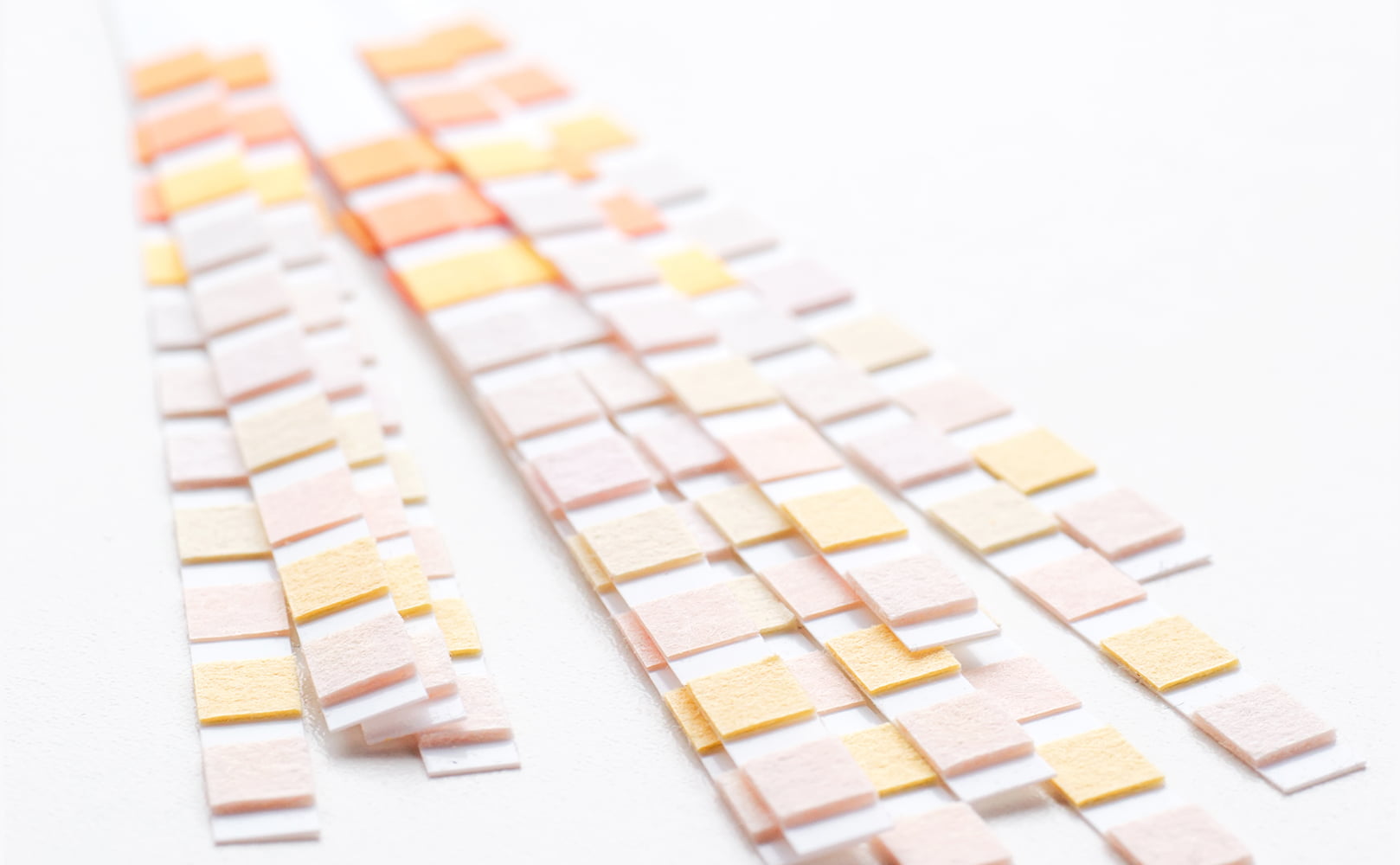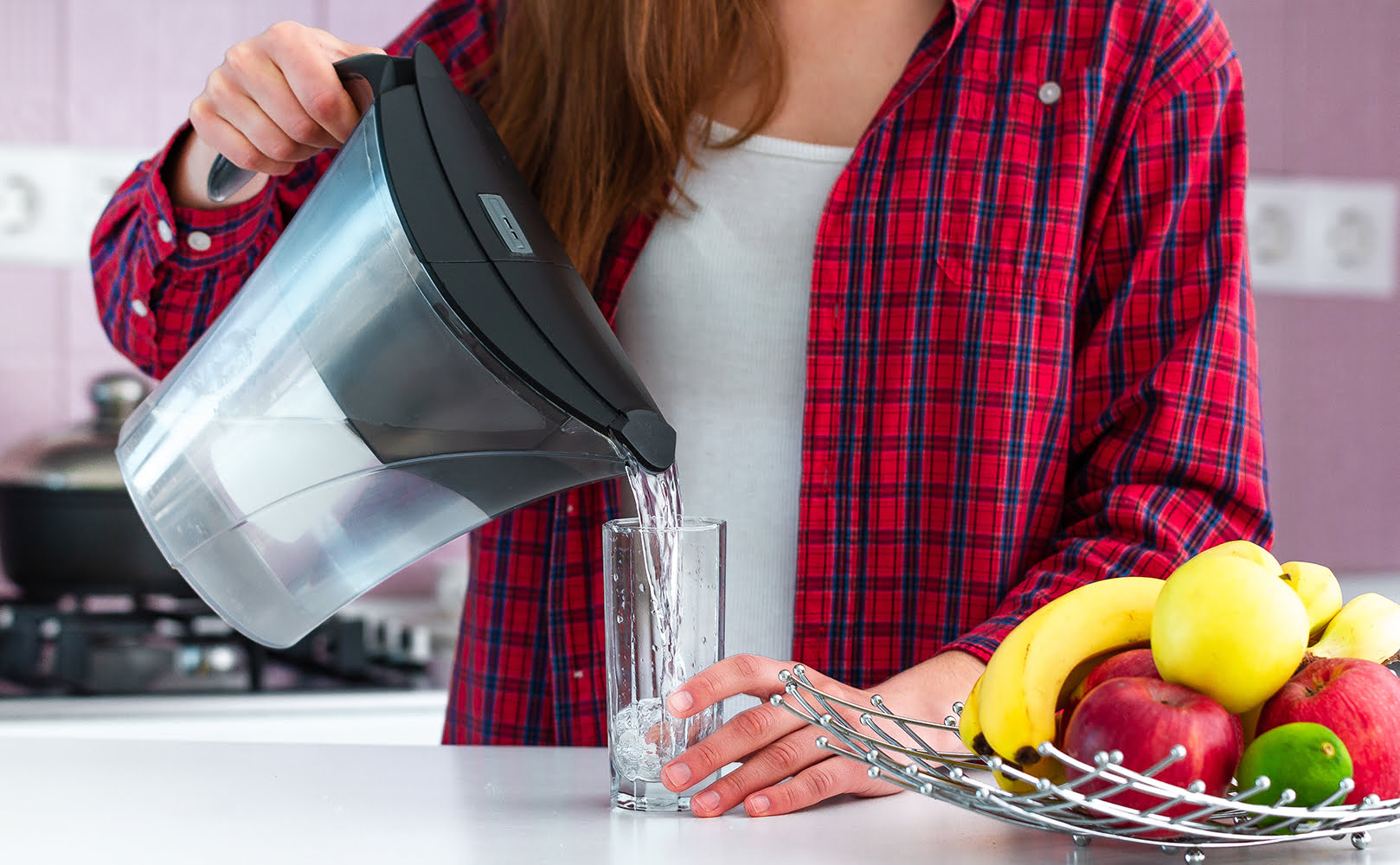How to Choose a Water Filter Pitcher?
Written by: Alexandra Uta // Last Updated: Jan 4, 2023
This page may contain affiliate links. If you buy a product or service through such a link we earn a commission at no extra cost to you. Learn more.
The market for water filter pitchers has developed quite a lot over the last decade.
There are many brands and models to choose from, some specifically adapted to the needs of customers with more unique water situations.
Taking some time to research the current selection of products properly is important before purchasing any available model.
Here are some tips for making the most of your money.
Key Takeaways
- You should choose a water filter pitcher based on your water quality – conduct testing if you haven’t yet.
- Based on the results, get the ideal filter pitcher for you situation.
- Tip: Opt for a water filter pitcher that complies with NSF standards (NSF 53 in particular).
Considerations for How to Choose a Water Filter Pitcher
Testing Your Water Quality
Testing your water quality is probably one of the most important considerations for choosing a good water filter pitcher. You need to know what you’re dealing with before picking a model with specific features. Otherwise, you risk wasting a lot of money on something that’s designed to filter contaminants you don’t even have, and neglect those that you are actually facing.
If your water supply is coming straight from the city, you should be able to obtain a water quality report from your local authorities. You may also be able to procure one for water sourced from a well on your property.
If you’re unable to get your hands on a water quality report, you can submit a sample of your water to a specialized testing facility. These laboratories can provide you with a good overview of the kinds of contaminants you’re dealing with and the overall quality of your water supply.
You can also purchase a home-based test kit that allows you to perform a basic check on your water. Keep in mind that these kits are often not very precise, and will give you a rough idea of your situation at best. For example, they can alert you to the presence of specific elements like iron and other heavy metals, and tell you how hard your water is.
There are publicly available resources which can provide you with free reports as well. This site, as well as this one are both good starting points.
Contaminant Removal
Different water filter pitchers are designed for different types of contaminants. Some are very basic and will only remove chlorine and other impurities. Those are useful if you want to improve the overall taste and smell of your water.
If you have more serious health concerns, you might need to look into a more advanced filter that specifically targets the contaminants you’re interested in removing. These can cost more and you may have a more limited range of options to choose from.
NSF/ANSI Pitcher Water Filter Testing & Certifications
There are several NSF/ANSI standards specifically aimed at contaminant removal. Standards 42 and 53 are usually the most important ones to look out for, as they are concerned with the removal of chlorine taste and odor as well as contaminants that can impact your health, including heavy metals and various chemicals.
Keep in mind that some standards are relatively new. Standard 401, for example, may not be listed for some older models as they haven’t been tested for it specifically. This standard is related to the removal of drugs, medications, and various other organics.
Jug Size a.k.a. Water Storage Capacity
You will also want to choose a pitcher that works well for your water consumption habits. Simply going for the largest jug on the market is rarely a good idea if you live alone or in a small household.
While it can be convenient to not have to refill your pitcher frequently, you will also have to deal with water that tastes stale after it’s been sitting in your pitcher for hours on end.
Larger pitchers are also more difficult to refill. Their size can make it awkward to fit the pitcher under your faucet. If you have small children or elderly family members, a larger jug can be more difficult to operate for them as they might have trouble lifting it up.
Filtration Speed
Running water through a water filter pitcher is usually slow. You will often have to wait at least a couple of minutes until you have enough water to fill one glass. If you anticipate having to frequently refill your pitcher, you should also pay attention to its filtration speed.
Keep in mind that faster isn’t always better. There’s a reason some of the best models on the market take a while to work. Thorough filtration is always going to be slower. That’s not to say that fast operation is necessarily a bad sign, but you have to remember that you’re likely making a compromise with the overall filtration quality.
Life of Filter Elements + Replacement Cost
You must always consider the long-term cost of using a pitcher before buying it. The initial purchase price is only one part of that equation – and in many cases it ends up being the smallest.
Check how often you’ll have to replace the filter cartridges, and how much each new cartridge will cost you. Try to do some rough estimates about the long-term cost of your pitcher based on that.
Materials
Plastic and glass are the most commonly used materials for water filter pitchers. Some models may also be made of metal. Those are usually intended for travel, as they come with some inherent downsides like not being able to see how much water is left in the filter at a glance.
Glass might seem like the better choice, but it also has some disadvantages. It can break more easily and requires you to be more careful when disassembling and cleaning your pitcher. On the other hand, some people claim that they can taste a difference between water that’s been sitting in a plastic vs a glass pitcher, and prefer to use glass whenever it’s an option.
Plastic models are the ideal middle ground for most people. You just have to be careful not to scratch your pitcher because that can leave small deposits of plastic in the water. Plastic is a particularly good option for families with children, as it’s harder to break.
The most important consideration when buying a plastic model is that it only uses BPA-free materials.
Price Tag
As we mentioned above, the money you’re spending on the initial purchase of the filter isn’t everything. You must also account for replacement filters.
Some models come at a very low upfront price, but require frequent filter replacements that are very expensive. In some cases, you can run through the initial purchase price in less than a few months simply from buying replacement filters.
With some manufacturers, you can buy replacement cartridges in bulk, saving a good deal of money. They might also be released in special promotional packages that allow you to get an even better price.
Warranty
Warranty varies widely across the board. Some companies only offer a year, while others go as far as to offer lifetime warranty on all (or most) of their products.
Ideally, you should never have to make use of the warranty in the first place. But if something breaks unexpectedly, it will be good to know that you’re fully covered by your manufacturer and won’t have to spend any extra money on repairs or replacements.
If you have any questions about how to choose a water filter pitcher please don’t hesitate to leave a comment below!
Information provided on BOS is for educational purposes only. The products and services we review may not be right for your individual circumstances.
We adhere to strict editorial guidelines. Rest assured, the opinions expressed have not been provided, reviewed, or otherwise endorsed by our partners – they are unbiased, independent, and the author’s alone. Our licensed experts fact-check all content for accuracy. It is accurate as of the date posted and to the best of our knowledge.



